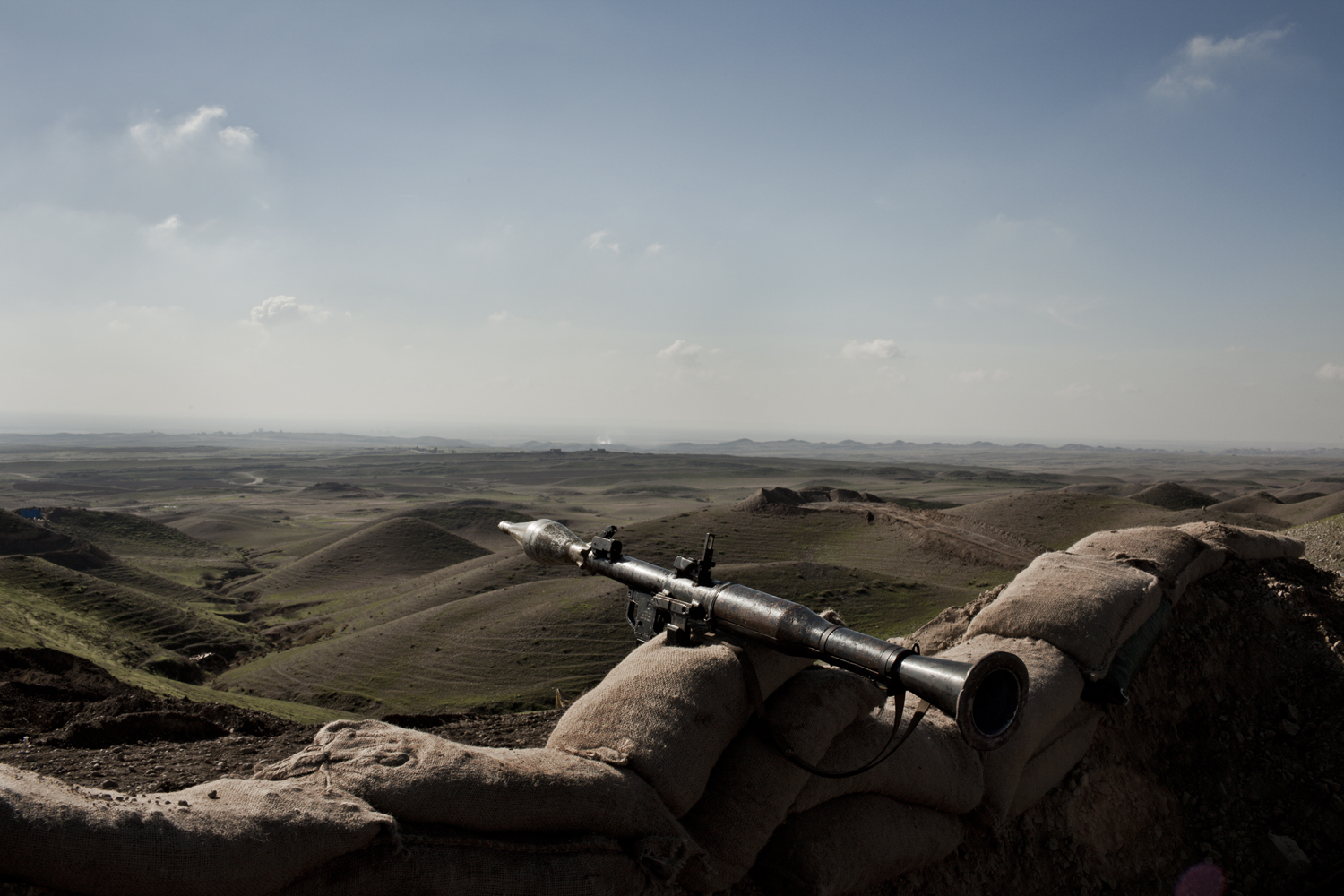
The semi-autonomous Kurdish region in Iraq’s north is booming. Thanks to oil and gas money, five star hotels, luxury shopping malls and gardened pavilions are popping up all over the region. Tourists, drawn by the area’s relative security and stunning natural vistas, are following: Erbil, the regional capital, was named the Arab Council on Tourism’s place to visit for 2014.
But a dispute over oil with Baghdad could threaten this newfound prosperity. Baghdad says the Kurds have no right to ink their own oil and gas deals with multinational companies and they have no right to export that gas. Some 60,000 troops – half Iraqi Army and half Kurdish peshmerga – are in a tense standoff in disputed lands along the Kurdish border near the town of Kirkuk. Though they are now close trading partners, Turkey still regularly bombs the PKK, a Turkish Kurdish group operating out of Iraqi Kurdistan. And some 65,000 Syrian Kurdish refugees, most of them housed in a UNHCR camp called Domiz near the city of Dohuk, are stretching Iraqi Kurdish resources thin. Since the fall of the Ottoman Empire at the end of World War I, the Kurds have been seeking an independent state. They are closer than ever to that dream thanks to the oil and gas riches beneath their lands, but the fight over those same resources could bring war back to Iraq a year after the last U.S. troops left.
Related: Read more of Jay Newton-Small’s story in this week’s issue of TIME.
Ivor Prickett is a documentary photographer based between Istanbul and London and is represented by Panos Pictures.
Jay Newton-Small is a Washington correspondent for TIME. She writes on foreign policy and the State Department.
More Must-Reads From TIME
- The 100 Most Influential People of 2024
- The Revolution of Yulia Navalnaya
- 6 Compliments That Land Every Time
- What's the Deal With the Bitcoin Halving?
- If You're Dating Right Now , You're Brave: Column
- The AI That Could Heal a Divided Internet
- Fallout Is a Brilliant Model for the Future of Video Game Adaptations
- Want Weekly Recs on What to Watch, Read, and More? Sign Up for Worth Your Time
Contact us at letters@time.com